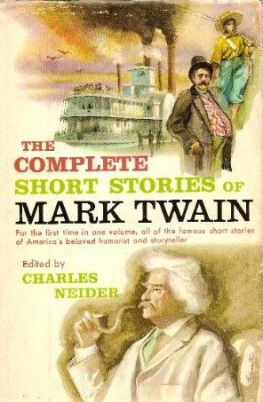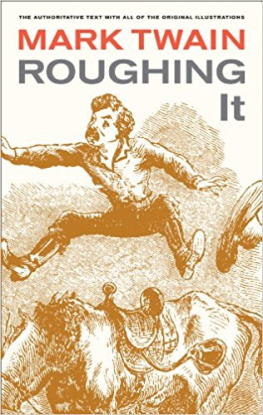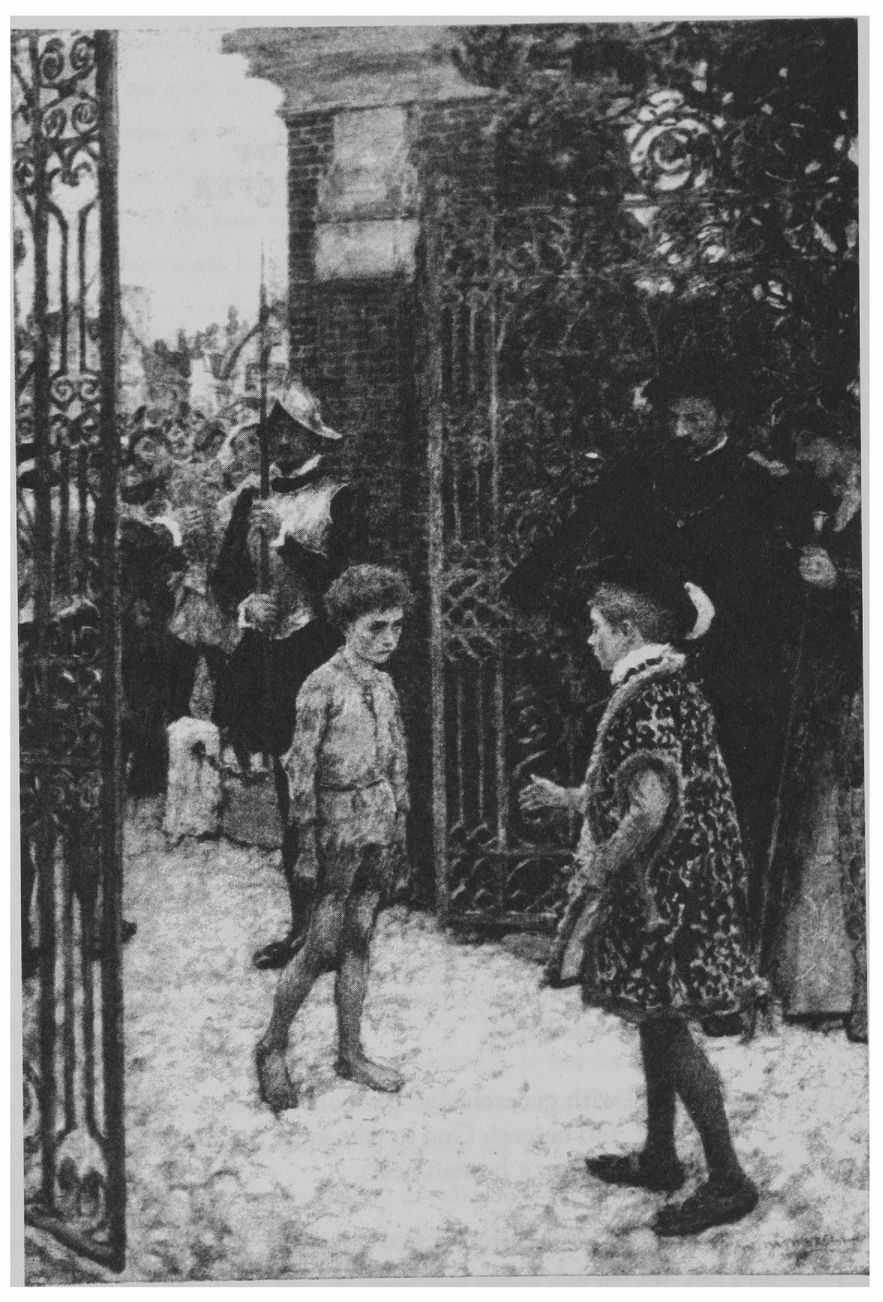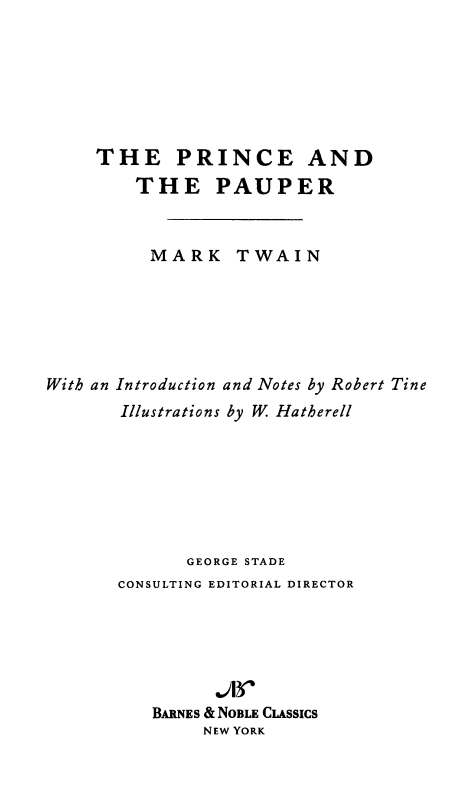
Table of Contents
FROM THE PAGES OFTHE PRINCE AND THE PAUPER
In the ancient city of London, on a certain autumn day in the second quarter of the sixteenth century, a boy was born to a poor family of the name of Canty, who did not want him. On the same day another English child was born to a rich family of the name of Tudor, who did want him. All England wanted him too. (page 11)
When I am king, they shall not have bread and shelter only, but also teachings out of books; for a full belly is little worth where the mind is starved, and the heart. (page 27)
And so I am become a knight of the Kingdom of Dreams and Shadows! (page 76)
In truth, being a king is not all drearinessit hath its compensations and conveniences. (page 94)
Pleasant thoughts came at once; life took on a cheerfuler seeming. He was free of the bonds of servitude and crime, free of the companionship of base and brutal outlaws; he was warm, he was sheltered; in a word, he was happy. (page 123)
The boy was filled with generous indignation, and commanded her to go to her closet, and beseech God to take away the stone that was in her breast, and give her a human heart. (page 180)
What dost thou know of suffering and oppression? I and my people know, but not thou. (page 210)
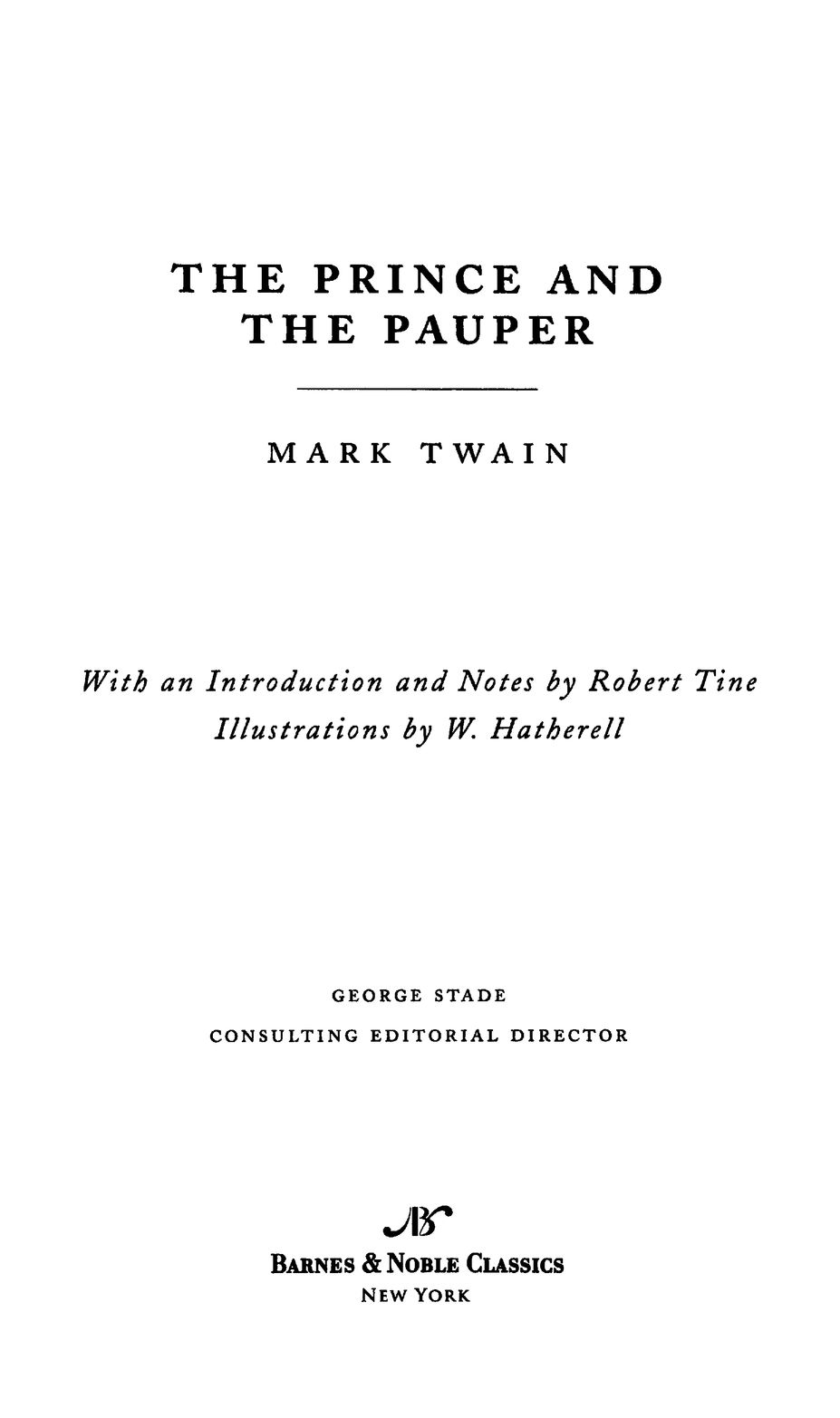
MARK TWAIN
Mark Twain was born Samuel Langhorne Clemens on November 30, 1835. When Sam was four years old, his family moved to Hannibal, Missouri, a small town later immortalized in The Adventures of Tom Sawyer and Adventures of Huckleberry Finn. After the death of his father, twelve-year-old Sam quit school and supported his family by working as a delivery boy, a grocers clerk, and an assistant blacksmith until he was thirteen, when he became an apprentice printer. He worked for several newspapers, traveled throughout the country, and established himself as a gifted writer of humorous sketches. Abandoning journalism at points to work as a riverboat pilot, Clemens adventured up and down the Mississippi, learning the 1,200 miles of the river.
During the 1860s he spent time in the West, in newspaper work and panning for gold, and traveled to Europe and the Holy Land; The Innocents Abroad (1869) and Roughing It (1872) are accounts of those experiences. In 1863 Samuel Clemens adopted a pen name, signing a sketch as Mark Twain, and in 1867 Mark Twain won fame with publication of a collection of humorous writings, The Celebrated Jumping Frog of Calaveras County and Other Sketches. After marrying and settling in Connecticut, Twain wrote his best-loved works: the novels about Tom Sawyer and Huckleberry Finn, and the nonfiction work Life on the Mississippi. Meanwhile, he continued to travel and had a successful career as a public lecturer.
In his later years, Twain saw the world with increasing pessimism following the death of his wife and two of their three daughters. The tone of his later novels, including The Tragedy of Puddnhead Wilson and A Connecticut Yankee in King Arthurs Court, became cynical and dark. Having failed as a publisher and suffering losses from ill-advised investments, Twain was forced by financial necessity to maintain a heavy schedule of lecturing. Though he had left school at an early age, his genius was recognized by Yale University, the University of Missouri, and Oxford University in the form of honorary doctorate degrees. He died in his Connecticut mansion, Stormfield, on April 21, 1910.
THE WORLD OF MARK TWAIN ANDTHE PRINCE AND THE PAUPER
| 1835 | Samuel Langhorne Clemens is born prematurely in Florida, Missouri, the fourth child of John Marshall Clemens and Jane Lampton Clemens. |
| 1839 | The family moves to Hannibal, the small Missouri town on the west bank of the Mississippi River that will become the model for the setting of Tom Sawyer and Huckleberry Finn. |
| 1840 | American newspapers gain increased readership as urban populations swell and printing technology improves. |
| 1847 | John Clemens dies, leaving the family in financial difficulty. Sam quits school at the age of twelve. |
| 1848 | Sam becomes a full-time apprentice to Joseph Ament of the Missouri Courier. |
| 1850 | Sams brother Orion, ten years his senior, returns to Hannibal and establishes the Journal; he hires Sam as a compositor. Steamboats become the primary means of transport on the Mississippi River. |
| 1852 | Sam edits the failing Journal while Orion is away. After he reads local humor published in newspapers in New England and the Southwest, Sam begins printing his own humorous sketches in the Journal. He submits The Dandy Frightening the Squatter to the Carpet-Bag of Boston, which publishes the sketch in the May issue. |
| 1853 | Sam leaves Hannibal and begins working as an itinerant printer; he visits St. Louis, New York, and Philadelphia. His brothers Orion and Henry move to Iowa with their mother. |
| 1854 | Transcendentalism flourishes in American literary culture; Henry David Thoreau publishes Walden. |
| 1855 | Sam works again as a printer with Orion in Keokuk, Iowa. |
| 1856 | Sam acquires a commission from Keokuks Daily Post to write humorous letters; he decides to travel to South America. |
| 1857 | Sam takes a steamer to New Orleans, where he hopes to find a ship bound for South America. Instead, he signs on as an apprentice to river pilot Horace Bixby and spends the next two years learning how to navigate a steamship up and down the Mississippi. His experiences become material for Life on the Mississippi and his tales of Tom Sawyer and Huck Finn. |
| 1858 | Sams brother Henry dies in a steamboat accident. |
| 1859 | Samuel Clemens becomes a fully licensed river pilot. |
| 1861 | The American Civil War erupts, putting an abrupt stop to river trade between North and South. Sam serves with a Confederate militia for two weeks before venturing to the Nevada Territory with Orion, who had been appointed by President Abraham Lincoln as secretary of the new Territory. |
| 1862 | After an unsuccessful stint as a miner and prospector for gold and silver, Clemens begins reporting for the Territorial Enterprise in Virginia City, Nevada. |
| 1863 | Clemens signs his name as Mark Twain on a humorous travel sketch printed in the Territorial Enterprise. The pseudonym, a riverboat term meaning two fathoms deep, connotes barely navigable water. |
| 1864 | After challenging his editor to a duel, Twain is forced to leave Nevada and lands a job with a San Francisco newspaper. He meets Artemus Ward, a popular humorist, whose techniques greatly influence Twains writing. |
| 1865 | Robert E. Lees army surrenders, ending the Civil War. While prospecting for gold in Calaveras County, California, Twain hears a tale he uses for a story that makes him famous; originally titled Jim Smiley and His Jumping Frog, it is published in New Yorks |


